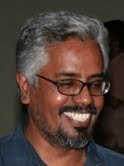Kirtichandra
Patriotism as Jingoism
It is one thing to be proud of one’s land and yet another being jingoist about it. But our films, obsessively tied to the ‘hero-villain’ black and white format, always invariably indulge in jingoism when they claim to be dealing with ‘patriotism’. It is indeed interesting to see whether any discourse or narrative of patriotism is possible at all without it positing an ‘other’, the enemy. It is the lurking presence of the enemy that makes ‘us’, it is ‘their’ threat that invokes us to stay together and assert ourselves. Without ‘them’, ‘we’ are impossible. Running through all the post-Kargil ‘patriotic’ films in India is this jingoism. Major Ravi’s film ‘Kirti Chakra’ is the latest addition to this genre from Malayalam.
In all these films, the enemy is invariably Pakistan, which in turn ‘automatically’ means Muslims. So the narrative gradually turns out to be actually targeting the ‘enemy within’ rather than without. Here, the ‘nation’ ‘naturally’ comes to mean ‘Hindustan’ (literally), and one need extend this logic too long for patriotism to turn into Hindu pride. So naturally all the villains are the treacherous Mussalmans, who never belong/ed ‘here’. Interestingly, in Kirtichakra only women among the Muslims seem to share (or realize) the nationalist fervour of the ‘heroes’, the men are easy preys to the cause of violence and bigotry. While the Hindus sacrifice their lives for the nation and ‘the people’, Muslims do that only for their religion. So nationalism comes ‘naturally’ to the former while it has to be imposed on the other.
Like any other ‘war movie’, Kirtichakra is also a male buddy movie, with the women only appearing as brief interruptions in the manly world of risks, adventure and action. On ‘this side’, they are charming objects patiently and proudly waiting at home for their heroic partners, and on the ‘other side’, they are gullible victims to the fanatic designs of men and religion. This pattern is yet another polemical formula for female characters - the romantic-innocent love or the preys and the victimized. While the ‘heroes’ love and adore and protect their women, the ‘villains’ use and abuse them. The worlds of women and men are neatly divided into the home and the world. The valiant Mahadevan (Moahanlal) loses his wife and kid in a terrorist attack, will still head the larger family of the nation. Jai, his buddy loses his own life trying to save his boss, but his widow will dedicate their child from their little family to the larger one of the nation. Such simplistic formulae are the stuff jingoism sustains itself with.
Significantly, all great films dealing with war are essentially anti-war movies. They assert life and point at the futility of violence and war. On the other hand, jingoistic movies of all varieties, whether it be Hollywood, Bollywood or Malayalam, thrive upon enmity, strife, violence and division. It feeds upon martyrs and violence, and finds it impossible to narrativise joy and peace. Exactly why a film like Kirtichakra makes one sad despite all its other merits like casting (impressive performances by Mohanlal and Jeeva), breezy editing and camera work. Because its pro-war jingoism makes it a painful viewing experience, as a result, in the name of patriotism what it glorifies is hatred and bigotry.


0 Comments:
Post a Comment
Subscribe to Post Comments [Atom]
<< Home